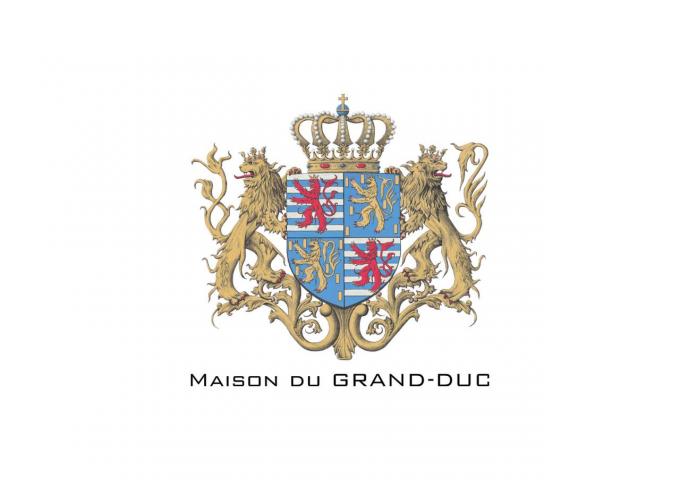
On June 23rd, 2024, the Maison du Grand-Duc (Luxembourg’s Royal Court) announced that a major transition would occur within the Luxembourg monarchy, with His Royal Highness Guillaume, Hereditary Grand Duke of Luxembourg (often called “Prince”), would be taking on the constitutional role of “Lieutenant Répresentant” in October. The date was eventually set as October 8th, 2024. This change marks a significant moment in Luxembourg’s royal history, but it’s not an abdication by Grand Duke Henri. Rather, it signals the beginning of a carefully managed transfer of responsibilities.
History of the Lieutenant Répresentant in Luxembourg
The title of Lieutenant Répresentant has a unique place in Luxembourg’s royal tradition. It’s not a position that has always existed or been used in the Luxembourgish monarchy, but when invoked, it signifies a critical point of transition within the monarchy. The role allows the heir apparent to the crown to temporarily take over the duties of the reigning monarch without requiring immediate abdication by the current Grand Duke. This system has been used during times when the Grand Duke or Grand Duchess wishes to step back from active duties but remains formally the country’s monarch, giving the heir apparent a smoother transition into the role.
Historically, this title has been employed only a few times:
1961: Grand Duchess Charlotte appointed her son, Jean, as Lieutenant Répresentant as she began to withdraw from public life. Jean served in this capacity until 1964, when Charlotte formally abdicated, and Jean became Grand Duke.
1998: Grand Duke Jean, in turn, appointed his son, Henri, as Lieutenant Répresentant. Grand Duke Jean’s gradual step back allowed Henri to ease into his future role, officially ascending to the throne when Jean abdicated in 2000.
These transitions highlight the role’s significance as a preparatory step, easing the heir into leadership responsibilities while maintaining stability within the royal family.
The Role in Luxembourg’s Constitution
Interestingly, the Lieutenant Répresentant was not always a constitutional feature of Luxembourg’s monarchy. It was introduced in the mid-20th century to provide a flexible framework for managing royal transitions. The modern Luxembourg Constitution includes provisions for such a role, allowing for temporary representation if the reigning monarch is unable or unwilling to exercise their duties.
Article 42 of the current Constitution states that if the Grand Duke is incapacitated or chooses to step back from his responsibilities, a regency or temporary representation can be established by law. This legal framework facilitated the appointment of Jean and Henri as Lieutenant Répresentant in past transitions, and now it provides the foundation for Guillaume’s appointment in 2024.
The October 8th Transition: A Key Moment in Luxembourg’s Royal History
The significance of October 8th lies in its symbolic meaning for the future of Luxembourg’s monarchy. On this day, a ceremony will take place at the Grand Ducal Palace to formally designate Prince Guillaume as Lieutenant Répresentant. The Grand Duke’s decision to transfer some of his duties to his son reflects the careful planning that characterizes Luxembourg’s royal transitions. It allows Prince Guillaume to take on more responsibilities, learning from his father while preparing for his future role as Grand Duke.
This isn’t an abdication, but rather a well-thought-out process designed to ensure a smooth handover of duties. As in previous instances, the role of Lieutenant Répresentant enables the heir to represent the monarchy in official matters, both domestically and internationally, while Grand Duke Henri remains the sovereign head of state.
Schedule for the Transition on October 8th
 For those interested in the official proceedings on October 8th, here’s the schedule for the key events:
For those interested in the official proceedings on October 8th, here’s the schedule for the key events:
15:00: A ceremony will be held at the Palais Grand-Ducal, where Grand Duke Henri and Prime Minister Luc Frieden will sign the arrêté grand-ducal, officially appointing Prince Guillaume as Lieutenant Répresentant.
15:30: The next event will take place at the Chamber of Deputies, where Prince Guillaume will take the oath of office as required by the Constitution.
16:05: After the oath, Prince Guillaume will return to the Palais Grand-Ducal on foot, symbolically marking the beginning of his new role in public view.
(EDIT: 10/14/24: We’ve included a picture from the actual event to the left).
A Modern Transition with Historical Roots
As Luxembourg prepares for this royal transition, it reflects the country’s broader tradition of stability and continuity. The monarchy has evolved over the years, adapting to the modern era while preserving its historical roots. The appointment of Prince Guillaume as Lieutenant Répresentant is not just a ceremonial moment; it is a continuation of Luxembourg’s approach to careful, measured transitions within its monarchy. By introducing this role again in 2024, the Grand Ducal family ensures that the responsibilities of the monarchy will be passed down in a way that honors tradition while preparing for the future.
This momentous event demonstrates how Luxembourg’s monarchy remains relevant and adaptable, even in the 21st century. It serves as a reminder of the enduring nature of the Grand Ducal family and its importance to the national identity of Luxembourg.
For more information on the Luxembourgish monarchy, please visit https://www.monarchie.lu
Photo attributed to the Luxembourg American Chamber of Commerce by Russ Rowland.

